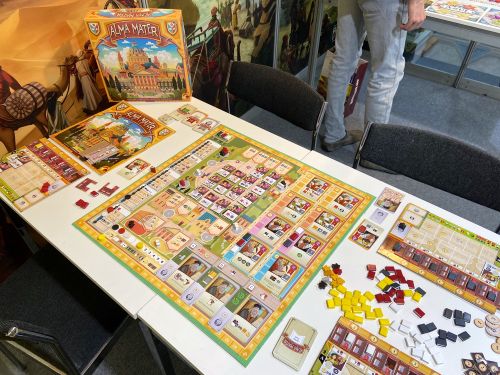


To name a few-combinatorial complexity, sparse rewards or other kinds of inherent difficulty. There can be various reasons for a given problem being hard for MCTS.

However, often, a linear increase is not enough to tackle difficult problems represented by trees and solving them would require effectively unlimited memory and computational power. Sometimes, increasing the effective computational budget would help, although in practical applications it may not be possible (e.g., because of strict response times, hardware costs, parallelization scaling). The utilitarian definition of “too difficult” is that MCTS achieves poor outcomes in the given setting under practical computational constraints. Moreover, in practical applications, the given problem often tends to be difficult for the base variant of the algorithm. However, it is possible to take advantage of heuristics and include them in the MCTS approach to make it more efficient and improve its convergence. In contrast to them, the MCTS algorithm is at its core aheuristic, which means that no additional knowledge is required other than just rules of a game (or a problem, generally speaking). Before MCTS, bots for combinatorial games had been using various modifications of the minimax alpha–beta pruning algorithm (Junghanns 1998) such as MTD(f) (Plaat 2014) and hand-crafted heuristics. 2012) as it allowed for a leap from 14 kyu, which is an average amateur level, to 5 dan, which is considered an advanced level but not professional yet. It was quickly called a major breakthrough (Gelly et al. MCTS has been originally proposed in the work by Kocsis and Szepesvári ( 2006) and by Coulom ( 2006), as an algorithm for making computer players in Go. In such trees, nodes denote states, also referred to as configurations of the problem, whereas edges denote transitions (actions) from one state to another. A short game (about an hour and a half) focused on story with some light puzzle solving and platforming.Monte Carlo Tree Search (MCTS) is a decision-making algorithm that consists in searching combinatorial spaces represented by trees. Featuring a gorgeous soundtrack by acclaimed artists like Message to Bears, Lowercase Noises, and Josh Kramer. Not a "fox simulator," but an emotional, intimate story by a one-man team with an ending you won't soon forget. For fans of Journey, Firewatch, and Shelter. Along the way, players can uncover artifacts and stories from the son's life as he becomes intertwined in the fox’s journey towards The First Tree. Players take control of the fox on a poignant and beautiful journey that crescendos at the source of life, and perhaps result in an understanding of death. From the creator of Home is Where One Starts… comes The First Tree, a third-person exploration game centered around two parallel stories: a fox trying to find her missing family, and a son reconnecting with his father in Alaska.


 0 kommentar(er)
0 kommentar(er)
